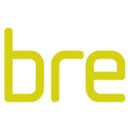Certified thermal details and products scheme
BRE is an independent, research-based consultancy, testing and training organisation. BRE Global is an independent third party approvals body offering certification of fire, security and sustainability products and services.
On 31 July 2015, BRE Global launched a Certified Thermal Details and Products Scheme which aims to reduce the level of thermal bridging which can account for as much as 30% of a dwelling’s overall heat losses.
The scheme will provide independent, third party assessment and certification of the designed thermal performance of:
- Building junction details.
- Opening products such as windows, doors and rooflights.
- Major building elements such as walls, roofs and floors.
The scheme will also consider the potential risk of surface condensation and mould growth on inside surfaces.
Assessments of details or products will be carried out by BRE and the approved product or detail will then be uploaded to an online database providing free access for manufacturers, suppliers, specifiers and designers. Certification will give users confidence about the performance of details and products demonstrating that they meet the required standards.
The scheme database will be accessible in Standard Assessment Procedure (SAP) 2016 software so that certified details can be used for assessments of energy performance.
The scheme will also be recognised within the Home Quality Mark, a voluntary scheme intended to influence the way consumers choose homes to buy or rent, giving them confidence that they are choosing a well built, cost-effective home. Homes built to the Home Quality Mark are independently evaluated by a licensed BRE Global assessor using a 5-star rating system indicating the overall expected costs, health and wellbeing benefits, and environmental footprint associated with living in the home.
BRE Scheme Technical Manager Graeme Hannah said, ‘The new scheme is a significant step forward in tackling an important issue within building performance that is often overlooked. The development of Government Accredited Construction details was a good starting point, and we are aiming to build on this by providing the industry with a wider range of accurate and independently assessed, readily accessible and searchable performance values in which they can have confidence...’
Managing Director of BRE Global Richard Hardy said, ‘Tougher legislation, rising energy prices and the introduction of the green finance mechanisms have encouraged increased use of insulation in walls, roofs and floors which is a positive step towards reducing heat losses. Now we need to ensure that the increased levels of insulation give the best return on investment by reducing the incidence of heat escaping through thermal bridges and ensuring that damp and mould do not occur.’
[edit] Find out more
[edit] Related articles on Designing Buildings Wiki
Featured articles and news
A case study and a warning to would-be developers
Creating four dwellings... after half a century of doing this job, why, oh why, is it so difficult?
Reform of the fire engineering profession
Fire Engineers Advisory Panel: Authoritative Statement, reactions and next steps.
Restoration and renewal of the Palace of Westminster
A complex project of cultural significance from full decant to EMI, opportunities and a potential a way forward.
Apprenticeships and the responsibility we share
Perspectives from the CIOB President as National Apprentice Week comes to a close.
The first line of defence against rain, wind and snow.
Building Safety recap January, 2026
What we missed at the end of last year, and at the start of this...
National Apprenticeship Week 2026, 9-15 Feb
Shining a light on the positive impacts for businesses, their apprentices and the wider economy alike.
Applications and benefits of acoustic flooring
From commercial to retail.
From solid to sprung and ribbed to raised.
Strengthening industry collaboration in Hong Kong
Hong Kong Institute of Construction and The Chartered Institute of Building sign Memorandum of Understanding.
A detailed description from the experts at Cornish Lime.
IHBC planning for growth with corporate plan development
Grow with the Institute by volunteering and CP25 consultation.
Connecting ambition and action for designers and specifiers.
Electrical skills gap deepens as apprenticeship starts fall despite surging demand says ECA.
Built environment bodies deepen joint action on EDI
B.E.Inclusive initiative agree next phase of joint equity, diversity and inclusion (EDI) action plan.
Recognising culture as key to sustainable economic growth
Creative UK Provocation paper: Culture as Growth Infrastructure.























